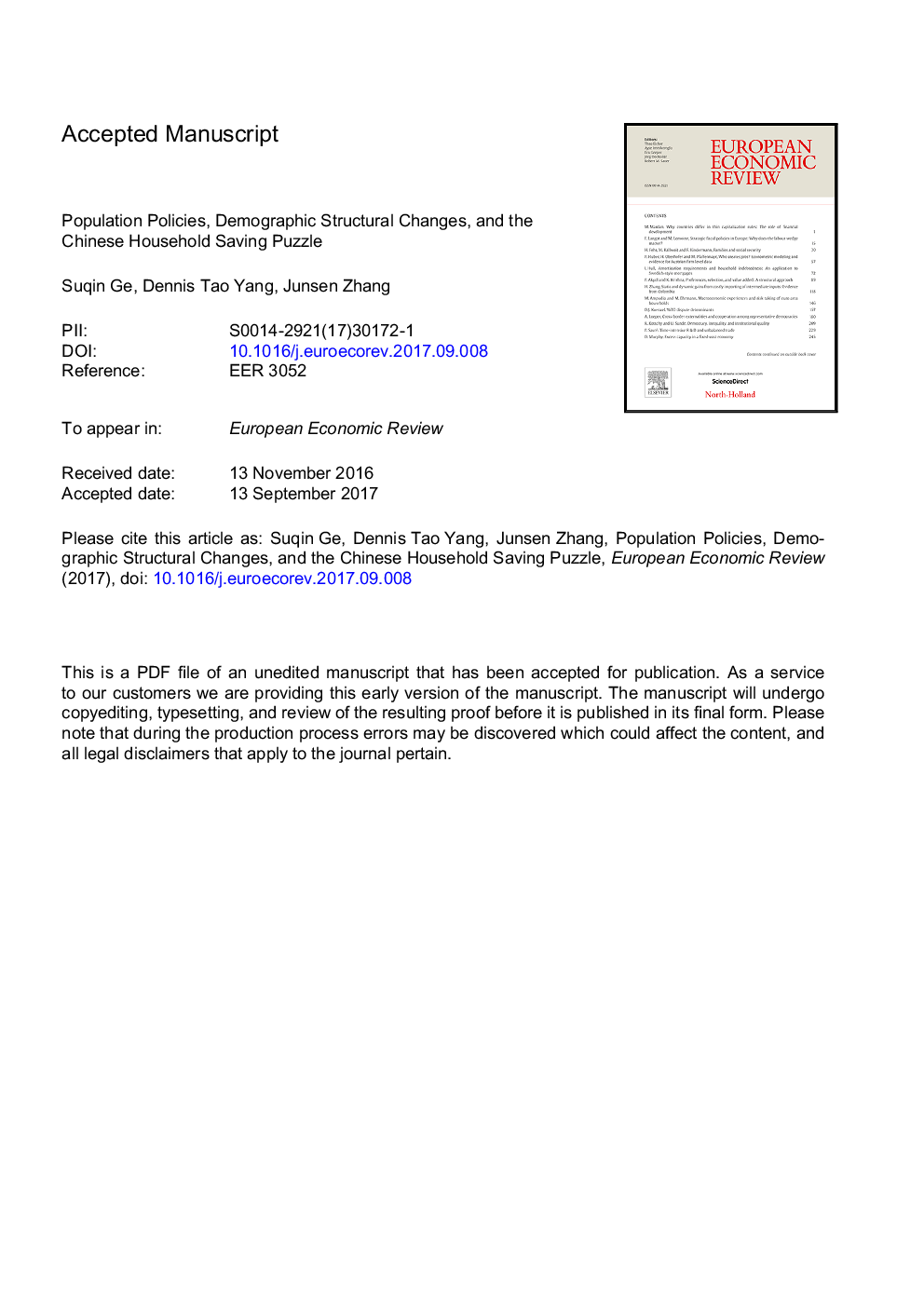| Article ID | Journal | Published Year | Pages | File Type |
|---|---|---|---|---|
| 7351612 | European Economic Review | 2018 | 68 Pages |
Abstract
Using combined data from population censuses and Urban Household Surveys, we study the effects of demographic structural changes on the rise of household savings in China. Variations in fines across provinces for unauthorized births under the one-child policy and in cohort-specific fertility influenced by the implementation of population control policies are exploited to facilitate identification. We find evidence that older households with fewer adult children saved more, middle-aged households with fewer dependent children experienced increase in savings, and younger households with fewer siblings also saved more. These findings lend support to a simple economic model in which the effects of population control policies are investigated in the context of household saving decisions in China.
Related Topics
Social Sciences and Humanities
Economics, Econometrics and Finance
Economics and Econometrics
Authors
Suqin Ge, Dennis Tao Yang, Junsen Zhang,
